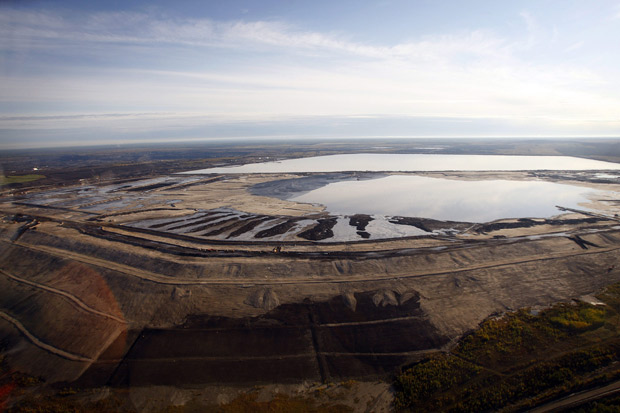OTTAWA – A top government watchdog slammed the Conservative government for making decisions about Alberta oilsands projects without having the information it needs to assess their potential environmental impacts.

Scott Vaughan, Canada’s Commissioner of the Environment and Sustainable Development, says that the government’s understanding of the environmental impacts of the rapidly developing oil sands is “hampered” by a lack of baseline information about surrounding ecosystems and inadequate environmental monitoring systems.
“We found that decisions about the oil sands projects have been based on incomplete, poor, or non-existent environmental information,” says Vaughan, who works as part of the Office of the Auditor General.
The October report is the first comprehensive study the Auditor General’s office has done of the environmental impact of the Alberta oilsands development.
The findings were part of a critical report that found the government is not on track to meeting its climate change targets.
Vaughan says the government’s own scientists admit they don’t have enough information about how the oilsands impact acid rain, water quality and supply, fish and wildlife and air quality in Alberta’s lower Athabasca region.
“The list of what they don’t know goes on and on, unfortunately,” says Vaughan.
The report also claims that there is also no understanding of how the effects of multiple oilsands projects are compounded over time.
- Small grocers, co-ops receiving boost from Loblaw boycott: ‘A lot of anger’
- B.C. man losing vision needs to find home for treasured book collection
- U.K. bans generic passwords over cybersecurity concerns. Should Canada be next?
- More foreign interference action coming after inquiry report, India arrests: LeBlanc
“When there are several development projects in the same region, it’s important to understand their combined impacts on the environment and how to minimize them,” Vaughan. “Failure to prevent environmental impacts from the start can lead to significant problems down the road.”
The report comes as the oil sands are poised for explosive growth. There are currently five surface mining projects in operation. Another is under construction and four more projects have been proposed.
Growth is spurred on in part by pipeline projects such as the controversial Keystone XL pipeline that would carry oil from Alberta’s oilsands to Texas. The American government is currently studying the environmental impacts of the proposed project – a project the Canadian government has already thrown its support behind.
Environment minister Peter Kent said that the government is committed to the responsible development of the oil sands, citing the government’s plan to set up a new monitoring program.
“Earlier this year, our Government released an integrated, world-class monitoring plan for the oil sands region, which we will implement with the Province of Alberta,” Kent said in a statement. “We coordinated the development of the monitoring plan in collaboration with provincial, territorial and academic scientists. It includes components for monitoring air quality, biodiversity, and the next phase of water quality monitoring in the oil sands region.”
Amidst serious criticism, Vaughan praised the government for the new plan, developed after an Oil Sands Advisory panel found the government failed in its monitoring system.
The problem, according to Vaughan, the government has yet to act.
“The government appears to have the right plan in place. It now needs to follow through and deliver,” he wrote in the report.
NDP environment critic Megan Leslie said the government was failing to fulfill its obligations on the oilsands and needs to curb the “uncontrolled expansion” happening now.
“I think it is sound advice for us to take a step back and think about what we are doing,” she said. “The NDP shares the concerns of Albertans and Canadians that the health and environmental impacts of oilsands development must be understood before we can move forward.”
It’s an opinion shared by John Smol, one of the scientists who served on the advisory panel.
“We have to find out what the environmental problems are now and start dealing with them before we start expanding at a breakneck speed,” he says. “We have really no idea what the negative impact has been.”



Comments